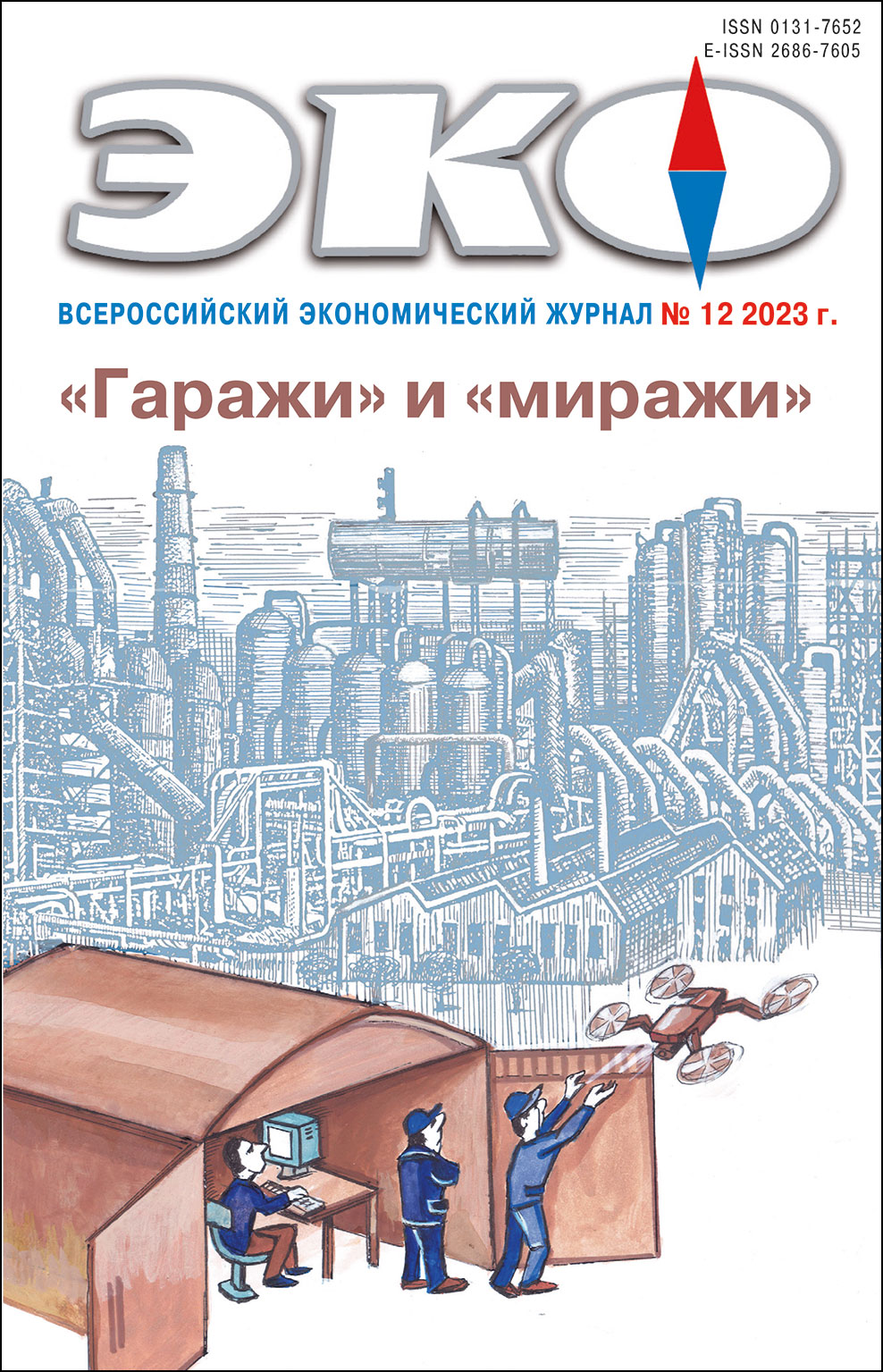CROSS-BORDER INTERACTION
The Principal Areas of Russia’s Interaction with Mongolia in the Framework of Transboundary Water Protection
Published 2023-11-26
Keywords
- Mongolia; Russia; development problems; infrastructure; transboundary water sharing; foreign economic cooperation
How to Cite
1.
Makarov А, Makarova Е, Beshentsev А. The Principal Areas of Russia’s Interaction with Mongolia in the Framework of Transboundary Water Protection. ECO [Internet]. 2023 Nov. 26 [cited 2026 Jan. 25];53(12):110-29. Available from: https://ecotrends.ru/index.php/eco/article/view/4692
Abstract
The paper analyzes topical issues of interaction between Russia and Mongolia in the context of the transboundary waters protection. The specific problems of the development of Mongolia are revealed. It is shown that the infrastructure in the strategic planning documents is considered as a key to the diversification of the Mongolian economy. The main threats of adverse transboundary impacts for Russia are highlighted in connection with the infrastructure development plans in Mongolia. The analysis of Russian-Mongolian economic relations is carried out. It is shown that the energy sector cooperation remains the basis of Russian economic diplomacy in the Mongolian direction. Proposals are put forward for the formation of a systematic approach to the prevention of water conflicts. It is proposed to be based on the solution of the issues of conducting an environmental assessment of hydro projects potentially dangerous for Russia in Mongolia, modernizing the contractual framework in the field of transboundary waters sharing and developing economic cooperation.References
- Бакей А., Чимэд-Очир Б., Кадирбек Д. Монгол орны бэлчээрийн тулгамдсан асуудал: гарц ба шийдэл. Улаан-Баатар: UNDP Монголия, 2019. 131 с.
- Бычков И.В., Никитин В.М, Максимова И.И. Гидроэнергетические проекты в монгольской части трансграничного бассейна реки Селенга: возможные риски для Российской Федерации // Регион: экономика и социология. 2017. № 2. С. 269–286.
- Макаров А.В. Научные основы взаимовыгодного сотрудничества России и Монголии в области совместного водопользования в бассейне озера Байкал. Улан-Удэ: БГУ им. Д. Банзарова, 2021. 290 с.
- Санеев Б., Батмунх С. (под ред.). Энергетическое сотрудничество России и Монголии: современное состояние, взгляд в будущее. Иркутск: ИСЭМ СО РАН, 2021. 340 с.
- Чалов С.Р., Гречушникова М.Г., Варенцов М.И., Касимов Н.С. Современная и прогнозная оценка стока воды и наносов рек бассейна Селенги // География и природные ресурсы. 2016. № 2. С. 39–48.
- Betcherman, G., Huang, Y., Millan, N., Norjinlkham, M. (2022). Mongolia Jobs Diagnostic: More Vibrant and Inclusive Labor Markets for Economic Recovery and Diversification. Washington, World Bank. 118 р.
- Dombrowsky, I. (2007). Conflict, Cooperation and Institutions in International Water Management – An Economic Analysis. Cheltenham, Edward Elgar. 392 p.
- Finus, M. (2001). Game Theory and International Environmental Cooperation (New Horizons in Environmental Economics). Cheltenham, Edward Elgar. 432 p.
- Helble, M., Hill, H., Magee, D., eds. (2020). Mongolia’s Economic Prospects: Resource-Rich and Landlocked between Two Giants. Manila, ADB. 322 p.
- Kaganova, O., Dash, B., Bat, O.-K., Chen, Y. (2018). Guidebook on Capital Investment Planning for the Capital City of Ulaanbaatar. Washington, World Bank. 96 p.
- Klaphake, A. (2005). Cooperation on international rivers from an economic perspective: the concept of benefit sharing. Bonn, GDI. 96 p. (In Germ.).
- Yoshitaka, H., Tuvshintugs, B., Khashchuluun, C., eds. (2022). Economic Dependence of Mongolia on Minerals: Consequences and Policies. Singapore, Springer. 202 p.

